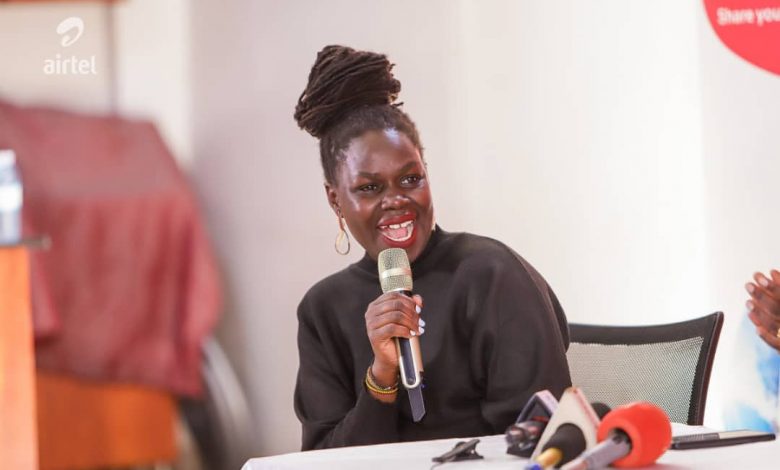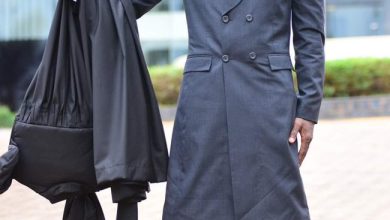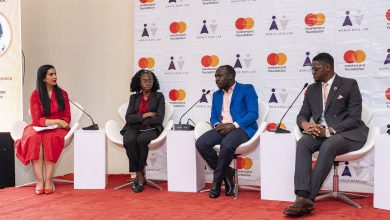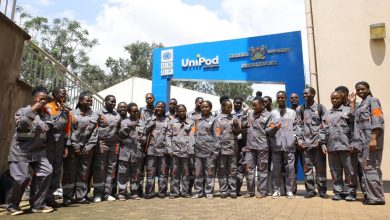
Ojao makes it big by helping girls, women to manage menstrual health
Born in a remote village in Nakapiripirit district in Karamoja district, Bernadette Ojao was no different from most girls born and bred in rural areas.
Among the main challenges, she faced during school time was managing her menstrual cycle. She had little or no knowledge about it.
“Whenever it was time for menstruation, I would find myself using toilet papers at school to clean myself. It(menstruation) would come without my knowledge and the most immediate remedy was using toilet papers from the washroom to clean myself. Every time it was time for menstruation, I wished I was a boy since they were not experiencing the pain I was going through,” Ojao says.
“Countless times, blood went through the school uniform and I had to make use of the sweater but at the end of the day, the desk would be filled with menstrual blood. It caused me so much discomfort and shame. At the end of the day, I would wait for everyone to get out of class and then move out slowly after cleaning the desk.”
In 2019, she teamed up with her friends and carried out a survey to help understand the challenges that people in marginalized communities like slum areas go through during menstruation period.
Ojao says they were astonished to learn that over 65% of the women and girls from Kamwokya, one of the biggest slums in Kampala, could not afford single use pads.
“They told us they had resorted to stripped clothes and newspapers. This touched us so much,” Ojao says.
She says that after her quest to find a job proved futile, she decided to “hustle” her way through using her skills to ensure she becomes a better person and this quest led her to founding Wabibi Pads Limited.
“I didn’t have anyone to hook me up for a job but my friend was going to Canada and asked to leave me with her sewing machine. I would look at it and said I needed to go to school of fashion to learn how to use it but my boyfriend encouraged me to get space to start using it, but I had no idea,” she says.
She went to YouTube and taught herself how to use the sewing machine.
“I loaded data for shs2000 on my phone and went on You Tube. I entered words of how to use a butterfly sewing machine. I went through the tutorial with my son at the back. It was not long before I learnt how to sew,” she says.
Ojao says she never looked back and started making herself sanitary pads for use during the menstruation period.
She says she opened up an Instagram page where she posted her first pads and everyone was inspired by her story.
Having posted her products on social media, one of the commentators (Jacinta) who was based in South Sudan and was running an organization asked Ojao to help teach her how to make the pads so she could teach the children being looked after by the organization.
Ojao was amazed by the idea.
“I trained Jacinta to make these pads and she paid me shs150,000 and it was so good. I had got my job. I had got something better I could do for myself. Later another organization that was running menstrual health campaign in Tororo came to me asking to teach their children how to make reusable sanitary pads.”
She says this was the first time she went out to train school children how to make reusable sanitary pads and she loved the experience with the young girls.
“It is then that I learnt that young girls could be lied to by men to sleep with them in return for pads. Many of them had got pregnant. Most of them had tried abortion and others could not return to school.”
Ojao says whereas initially she thought she was the most unprivileged person on earth while growing up, what she saw in Tororo changed her mind.
Covid-19 hits
When Covid-19 hit the country, Ojao made a facemask that she shared on social media and Tugende boda boda company contacted her to help make the masks.
“When they called me, I told them each mask went for shs3000 and they placed an order of 1500 masks they wanted to be delivered in two weeks. This was a kill for me. “
She says she went to Pinterest and searched for an idea of a reusable mask and on getting it, she asked a friend to help her out.
When the boda boda company paid deposit, it is what she used to buy materials to make the masks.
She says later, an opportunity came and was asked to write a proposal for assistance.
In the proposal, Ojao indicated she wanted to help marginalized women and girls in terms of menstrual hygiene management.
“The Innovation Village together with Mastercard Foundation under the Young Africa Works program approved it and helped me with a funding of $12000,” she says.
The funding helped her start Wabibi Pads, an organization making reusable sanitary pads by buying materials, renting space, employing some people and buying sewing machines.
“When I got the money, I was so excited and didn’t think about making budgets. I remember one time I trained 800 women and had to use a lot of money that I had not budgeted for. This however taught me many lessons.”
She says during the second lockdown in 2021, she made several losses because business was not moving well.
“This was a big blow to Wabibi Pads but I never gave up. After Covid-19, we stood again. One time I saw some leadership training and applied for it and was admitted. I got trained [on leadership],” she says.
Ojao says she has made an impact by teaching women and girls from marginalized communities to manage their menstrual hygiene.
She sells the pads to NGOs, educational, religious institutions and whoever wants to buy them.
“I am happy we have a platform and Ugandans knows us. The women I work with have achieved a lot. Many have bought land, taken their children to school and are renting the houses they live in,” she says.
Request
Ojao says government should believe in the dreams of youths and inject money in them.
“Right now, Wabibi would like to have more machines and enough materials to employ more people but we are limited. Government should support our work by buying pads from us and supplying them to girls. Government should scrap tax from the raw materials used to make sanitary pads.”
Ojao also asks youths to stop being job seekers and become job creators.
“There are a lot of resources you could work with to create a job and make a difference. Stop despising small beginnings. I remember when I started; some young people could not believe I could make it but now they come to ask for jobs from me. You might not make money in the first, second or third year but with time you will make it,” she says.
Future plans
She envisions starting factories not only in Uganda to employ young women in making reusable sanitary pads.
“Rome wasn’t built in one day but we see ourselves as women who will create a difference in lives of other women and girls. I am grateful what started small has become big. The stone that the builders ignored has become a cornerstone,” she says.



